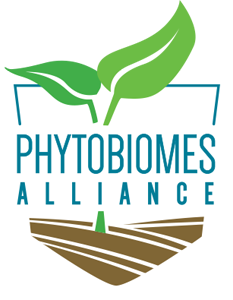
Angela Sessitsch

Role in Phytobiomes Alliance
Board of Directors, Coordinating Committee, Microbiomes Working Group, Sponsor Representative
Key Projects
Affiliation
Austrian Institute of Technology
Position
Head of Unit Bioresources
Research Interests
- Plant microbiome understanding
- Plant-microbe interactions
- Microbial / microbiome applications
Current Phytobiomes-related Projects
MicrobiomeSupport: Harmonising Microbiome Research Methods & Funding Worldwide, EU Horizon 2020 Research and Innovation Programme, 2018 – 2022
MicrobiomeSupport is a Coordination and Support Action project and aims to:
Harmonise the methods, approaches and standards used in microbiome research in different types of environment (soil, aquatic environments, animals, humans, etc.) and assess their economic and public health importance;
Support international efforts to align research funding to avoid unnecessary duplication of research by engaging microbiome researchers, funding agencies, policy makers and industry, specifically through coordinating the working group ‘Food Microbiomes’ of the International Bioeconomy Forum (IBF);
Raise public awareness on the potential of microbiome applications.
MICROMETABOLITE, Microbial Enhancement of Bioactive Secondary Metabolite Production in Plants – EU MARIE SKŁODOWSKA-CURIE ACTION Innovative Training Network, 2017 – 2021
Angela coordinates MICROMETABOLITE, which is an international PhD programme for highly motivated young scientists, offering 11 early-stage researchers the opportunity to improve their research and entrepreneurial skills and enhance their career prospects. This Marie Skłodowska-Curie Innovative Training Network is funded by the European Community’s Framework programme HORIZON 2020. MICROMETABOLITE will bring together multi-disciplinary and multi-sectoral expertise to elaborate the application of microorganisms, aimed at improving the production of natural plant products as the basis for a wide range of pharmaceutical and cosmetics products.
The overall objective of MICROMETABOLITE is to explore interactions between plants and microorganisms involved in the production of secondary metabolites (SM) for introducing novel ingredients in pharmaceutical and cosmeceutical industry. Effects of microorganisms on the plant metabolome and the biosynthesis of bioactive SM will be studied in the Boraginaceae plant family, aimed at optimising plant cultivation and alkannins/shikonins (A/S) production. Microorganisms will be integrated in plant production systems, and protocols needed for efficient implementation in industry will be elaborated. Thereby a platform will be established that will support long-term interactions between academia and industry.
SoLACE – Solutions for improving Agroecosystem and Crop Efficiency for water and nutrient use, EU Horizon 2020 Research and Innovation Programme, 2017 – 2022
The goal of SolACE – Solutions for improving Agroecosystem and Crop Efficiency for water and nutrient use – is to help European agriculture face major challenges, notably increased rainfall variability and reduced use of N and P fertilizers for both economic and ecological purposes. SolACE will design solutions (strategies and tools) that combine novel crop genotypes and agroecosystem management innovations to improve water and nutrient use efficiency. It will look at a range of agricultural contexts across pedo-climatic regions and farming systems of Europe.
AIT is responsible for WP3 of this international project, in which different agro-management practices including the application of microbial inoculants for improving crop efficiency. In particular, AIT will analyse the effect of these agro-management practices and different crop genotypes on microbiomes diversity and microbial functions by metagenome analysis.
The Setaria seed microbiome, Austrian Science Foundation, 2013 – 2018
The plant microbiome comprising complex communities has shown to play a role for plant growth and health. So far, mostly endophyte communities colonizing roots and stems have been studied. Seeds, however, are also colonized by a small number and diversity of endophytic bacteria, which have been rarely investigated so far. Our hypothesis is that seed endophytes may play a vital role for plant development and adaptation. The aim of this project is to use Setaria viridis as model plant to study the diversity and functioning of seed endophytes. S. viridis is closely related to maize and other important C4 grasses and it has a small genome, which has been recently sequenced. It furthermore can be easily cultivated and S. viridis represents a plant, which occurs naturally in many locations worldwide as it easily adapts to various conditions and has a weedy character.
The aim of project is to study the interaction between soil environment, plant genotype and seed endophyte communities as compared to stem endophyte communities. Seed endophytes are likely to be more conserved across sites and genotypes, whereas stem endophytes mostly derive from the soil environment. We furthermore address transmission routes of endophytes and will explore to which extent seed endophytes are vertically transmitted or derive from the soil or flowers. In regard to colonization genome sequencing of individual closely related strains will be used to identify the features, which are important for colonization of or a life inside seeds. Finally, the role of naturally colonizing seed endophyte communities on plant growth, development, adaptation and competition are addressed.
News
- From microbes to microbiomes: Applications for plant health and sustainable agriculture
- Landmark paper calls for the need to develop the world’s microbiome biobanking infrastructure
- The microbiome re-defined!
- Phytobiomes Alliance Newsletter – April 2019
- International Phytobiomes Alliance Announces New Appointments to Board of Directors
- Austrian Institute of Technology (AIT) joins International Phytobiomes Alliance
